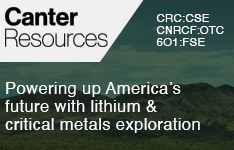Research is showing that more of us — and more parts of us — are being exposed to so-called "forever chemicals" targeted by an April EPA ruling meant to limit the amount of those chemicals in U.S. drinking water.
New studies have found the chemicals in human testes, where it can potentially affect children's health, and even in plastic baggies made by major producers and used by consumers every day.
The EPA finalized its standards on water contamination by the chemicals, known as per- and polyfluoroalkyl substances (PFAS), earlier this year and classified two of the widely used ones as hazardous substances under the Superfund.
PFAS chemicals were first made in the 1930s and are now found "widely in the food and water supply and in most people's blood," NPR reported June 21.
"Basically, every American is walking around with this stuff in their bodies," Erik Olson, a senior strategist with the Natural Resources Defense Council, a nonprofit advocacy group, told NPA in a June 21 report. "Nobody signed up for that, but we're all exposed to it and being put at risk."
At least three lawsuits against the EPA rule were filed by water utilities and chemical companies before a June 10 deadline, NPR reported.
"The lawsuits, filed by parties that may be directly or indirectly responsible for paying to remove PFAS from tap water, take aim at the EPA's science, cost analysis, and rule-making process," Pien Huang wrote for the news organization. "Legal experts say the pushback is expected, and it's not yet clear how much traction these challenges will gain in court."
Clean technology company BioLargo Inc. (BLGO:OTCQB) offers another solution to fighting the rule. The company said its Aqueous Electrostatic Concentrator (AEC) technology removes more than 99% of PFAS chemicals from water with less waste by-product generated than other methods.
"Regulatory changes continue to point to BioLargo's solution as THE emergent technology to deal with 'forever chemicals' in drinking water and elsewhere," wrote National Investor author Chris Temple on Tuesday.
The Catalyst: Millions Exposed
PFAS are a group of thousands of synthetic chemicals used in everything from the linings of fast-food boxes and non-stick cookware to fire-fighting foams and other purposes.
Prolonged exposure may be linked to adverse health risks such as cancer, hormonal disruption, and reduced immune system effectiveness, although research is still being conducted. They are called "forever chemicals" because they break down very slowly.
At least 70 million people are exposed to PFAS in U.S. drinking water, but that testing has only checked about one-third of the nation's public water systems, the EPA said.
The agency said it is on pace to find over 200 million people exposed, or at least 60% of Americans, not including those who use private wells. There's even a map of PFAS detections across the country.
New Body Parts Affected
The chemicals most commonly accumulate in the blood and liver, but have been found in organs throughout the body, as well as bones, The Guardian's Tom Perkins wrote June 22 while reporting on the study finding PFAS in testes.
Finding the chemicals there highlights how pervasive they in our bodies, co-author of the story and a Wayne State University School of Medicine researcher Michael Petriello said.
PFAS alters sperm DNA methylation, a process that turns genes on and off, the story reported. Methylation patterns can be inherited at fertilization and influence early-life development and health later in life.
"We've always been concerned with maternal environmental health effects because women gestate the babies," said co-author and researcher Richard Pilsner. "But this research is really saying there is a paternal contribution to offspring health and development."
Contaminated Baggies?
The plastic baggie study was conducted an EPA-certified lab commissioned by the Mamavation blog, Perkins wrote for The Guardian in March.
U.S. Food and Drug Administration rules allow for higher levels of some individual PFAS compounds in plastic than what the testing of 11 types of baggies found. However, Maricel Maffini, a researcher with the Environmental Defense Fund who tracks PFAS in food, the FDA is working off "outdated science."
"The more we look into PFAS, the more we know there is not a safe level, and the [FDA's limits] don't correspond with the science and knowledge we have of these chemicals," she said.
Nine of the 11 baggies tested (including Boulder, Complete Home, Great Value, If You Care, Lunchskins, Meijer, Target, and Walgreens) showed a high level of a PFAS marker, Perkins reported. The only brand that didn't show any PFAS markers was Ziploc.
Trade Groups Challenge EPA Rule
The challenges to EPA's rule are coming from trade groups representing water utilities and chemical manufacturers, including one specific manufacturer, The Chemours Company, NPR reported.
Chemours said in a statement to NPR that the EPA used "unsound data" and "misuses its authority."
"It's really disappointing to see the polluters that are spewing this stuff out into
the environment and contaminating the drinking water joining forces with the water utilities themselves in trying to overturn these rules," said Olson with the Natural Resources Defense Council.
More than 15,000 PFAS claims have been filed nationwide against DuPont and its spinoffs and 3M, major manufacturers of the substances in the U.S., Time reported. So far, settlements have totaled nearly US$11.5 billion in damages.
Process Shown to Meet Tough New Standards
AEC removes more than 99% of those dangerous substances and has been shown in pilot studies to meet the EPA's tough new specifications for PFAS in drinking water, the company said.
The process separates the compounds in an electrostatic field, forcing them across a proprietary membrane system. The AEC's energy costs are very low, and its waste stream is a fraction of that of traditional carbon or ion exchange systems.
Testing has shown the technology removes the chemicals to a level of "non-detection," or a level at which science can no longer detect them, the company said.
Oak Ridge Financial Research analyst Richard Ryan, on May 16, maintained his Buy rating of the stock with a price target of U$0.38 per share after the company's strong quarterly results. He noted the growing market for PFAS remediation as another highlight for the company.
"The dangers of PFAS are well documented, and this will become an ever-increasing area of attention," Ryan wrote. "BLGO's pipeline of PFAS potential projects has grown significantly as customers become more comfortable with its novel technology and as final EPA regulations for remediation are released."
Ownership and Share Structure
About 14.6% of BioLargo is owned by insiders and management, according to Yahoo Finance. They include Chief Science Officer Kenneth Code with 8.44%, CEO Calvert with 3.32%, and Director Jack Strommen with 1.64%, Reuters reported.
About 0.04% is held by the institution First American Trust, Reuters said.
The rest, about 85%, is retail.
Its market cap is US$80.41 million, with about 295.97 million shares outstanding and about 253.84 million free-floating. It trades in a 52-week range of US$0.45 and US$0.15.
| Want to be the first to know about interesting Technology investment ideas? Sign up to receive the FREE Streetwise Reports' newsletter. | Subscribe |
Important Disclosures:
- BioLargo Inc. is a billboard sponsor of Streetwise Reports and pays SWR a monthly sponsorship fee between US$4,000 and US$5,000.
- As of the date of this article, officers and/or employees of Streetwise Reports LLC (including members of their household) own securities of BioLargo Inc.
- Steve Sobek wrote this article for Streetwise Reports LLC and provides services to Streetwise Reports as an employee.
- This article does not constitute investment advice and is not a solicitation for any investment. Streetwise Reports does not render general or specific investment advice and the information on Streetwise Reports should not be considered a recommendation to buy or sell any security. Each reader is encouraged to consult with his or her personal financial adviser and perform their own comprehensive investment research. By opening this page, each reader accepts and agrees to Streetwise Reports' terms of use and full legal disclaimer. Streetwise Reports does not endorse or recommend the business, products, services or securities of any company.
For additional disclosures, please click here.



































